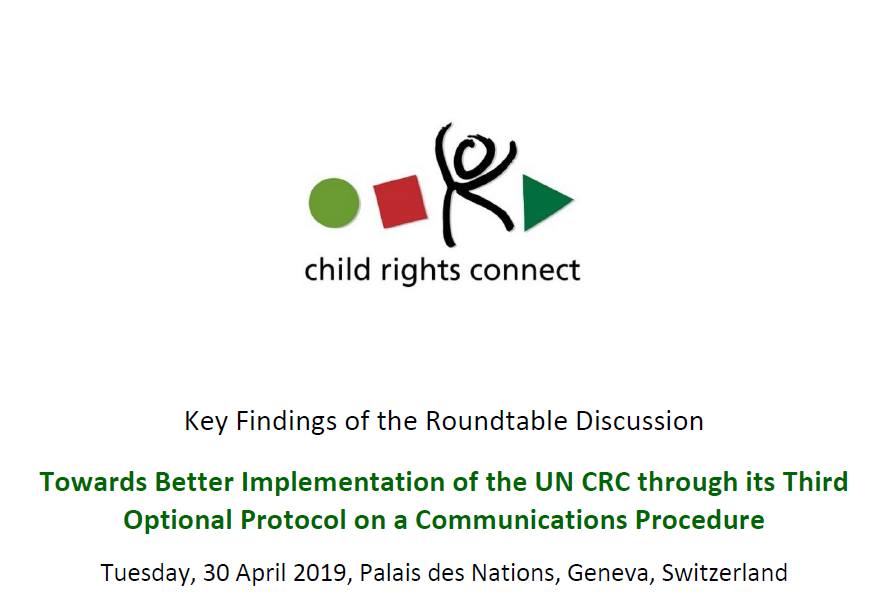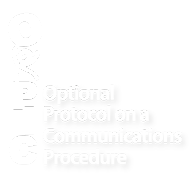
Access to justice is essential for children to be able to exercise and claim their human rights. Without accountability any of the rights provided by the UNCRC would lose meaning.
The entry into force of the Third Optional Protocol on a Communications Procedure (OPIC) in 2014 was groundbreaking as it allowed children to lodge complaints with the UN about violations of their rights, if violations cannot be addressed effectively at national level. However, this is can happen only when States ratify the OPIC and so far, only 45 out of the 196 States that have committed to implement the UNCRC have ratified the OPIC.
2019 is the 30th anniversary of the UNCRC as well as the 5th anniversary of the entry into force of the OPIC. It is time to ensure that ALL children in ALL countries are empowered to access justice on an equal footing as adults. To promote universal ratification and effective implementation of the OPIC, Child Rights Connect has produced the first-ever collection of experiences and recommendations from experts and stakeholders engaged in the ratification and implementation processes of the OPIC.
The report Towards a better implementation of the UNCRC through its Third Optional Protocol on a Communications Procedure summarizes the informal and under Chatham House Rules exchanges between UN, States, National Human Rights Institutions, Parliamentarians and civil society representatives that took place on 30 April 2019, during a closed roundtable organized by Child Rights Connect, in collaboration with the Office of the Special Representative of the Secretary-General on Violence against Children, the Committee on the Rights of the Child, the Office of the High Commissioner for Human Rights, and the permanent missions of Germany and Slovakia to the UN in Geneva.
Key findings include:
- The imperative to develop and widely disseminate more accessible information on the OPIC, as the instrument is still largely unknown and/or misunderstood, including by States;
- The importance for the OPIC to be supported by key stakeholders in order to persuade States to ratify it;
- The importance of exchanging information and experiences, among and within stakeholders; good practices related to the implementation of the OPIC can inform and strengthen arguments for ratification, while demonstrating positive impacts at the national level;
- OPIC mechanisms can be very helpful in drawing States’ attention to certain internal, including more structural, issues as well as in helping them to take concrete action to address them, going beyond measures taken at the level of individual cases;
- After, or in parallel to the ratification, adaptations are required at the national level: institutions and processes must be created or designated to deal effectively with incoming communications;
- The strong cooperation between the State party and the Committee, as well as transparency and availability of information from the Committee, are crucial to ensure a successful implementation of the OPIC at the national level;
- Children’s Ombudspersons and NHRIs play a key role in the helping children access justice and support for these institutions should be strengthened;
- The participation of civil society – the main users and supporters of OPIC- in the implementation of the OPIC is to be encouraged by States and NHRIs;
- OPIC mechanisms should be child-friendly and accessible to children through appropriate information, procedures and safeguards;
- The Committee is encouraged to produce graphics and material on OPIC that can be easily used by civil society, including children; and disseminated by Ombudspersons through their work with civil society or in their advisory councils, both for individual communications and in inquiries.
This Report is a unique advocacy tool that anyone can use to strengthen national efforts for the advancement of children’s access to justice, as well as synergies to increase the ratification of the OPIC and its effective implementation at the national level.

